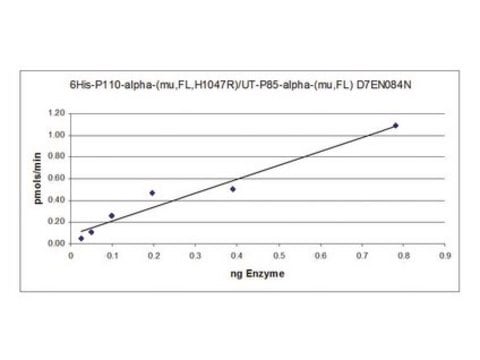All Photos(1)
About This Item
Linear Formula:
(CH3)3CNHOH · HCl
CAS Number:
Molecular Weight:
125.60
Beilstein:
3546053
EC Number:
MDL number:
UNSPSC Code:
12352100
PubChem Substance ID:
NACRES:
NA.22
Recommended Products
Assay
≥98%
form
solid
mp
183-185 °C (lit.)
SMILES string
Cl.CC(C)(C)NO
InChI
1S/C4H11NO.ClH/c1-4(2,3)5-6;/h5-6H,1-3H3;1H
InChI key
DCSATTBHEMKGIP-UHFFFAOYSA-N
Looking for similar products? Visit Product Comparison Guide
Application
N-tert-Butylhydroxylamine hydrochloride was used in spin trapping of short-lived radicals. It was also used in the synthesis of α-ketoamides and 3-spirocyclopropanated 2-azetidinones.
Storage Class Code
11 - Combustible Solids
WGK
WGK 3
Flash Point(F)
Not applicable
Flash Point(C)
Not applicable
Personal Protective Equipment
dust mask type N95 (US), Eyeshields, Gloves
Certificates of Analysis (COA)
Search for Certificates of Analysis (COA) by entering the products Lot/Batch Number. Lot and Batch Numbers can be found on a product’s label following the words ‘Lot’ or ‘Batch’.
Already Own This Product?
Find documentation for the products that you have recently purchased in the Document Library.
Customers Also Viewed
A New Three-Component Cascade Reaction to Yield 3-Spirocyclopropanated?-Lactams.
Zanobini A, et al.
European Journal of Organic Chemistry, 2006(5), 1251-1255 (2006)
Ludmila A Voloboueva et al.
FASEB journal : official publication of the Federation of American Societies for Experimental Biology, 21(14), 4077-4086 (2007-07-28)
Age-related macular degeneration (AMD) is the leading cause of severe visual impairment in the elderly in developed countries. AMD patients have elevated levels of iron within the retinal pigment epithelia (RPE), which may lead to oxidative damage to mitochondria, disruption
C Lagercrantz
Free radical research communications, 14(5-6), 395-407 (1991-01-01)
Spin trapping of short-lived R. radicals is done by use of N-tert-butylhydroxylamine (1) and H2O2. The hydroxylamine is oxidized to the radical t-BuN(O)H (2) which is converted into the spin trap 2-methyl-2-nitrosopropane (3). Simultaneously, hydroxyl radicals .OH are formed from
Hyun Jeong Kim et al.
Redox report : communications in free radical research, 10(6), 287-293 (2006-01-28)
Heat shock may increase oxidative stress due to increased production of reactive oxygen species and/or the promotion of cellular oxidation events. Therefore, compounds that scavenge reactive oxygen species may regulate heat shock-induced cell death. Recently, it has been shown that
Yu-Kyung Kim et al.
Clinical hemorheology and microcirculation, 40(4), 315-324 (2009-01-08)
Irradiation has been shown to induce biochemical changes in stored red blood cells (RBCs) and to generate reactive oxygen species (ROS). This study evaluated the hemorheological properties, the degree of lipid peroxidation and the oxidative susceptibility of irradiated RBCs. Furthermore
Our team of scientists has experience in all areas of research including Life Science, Material Science, Chemical Synthesis, Chromatography, Analytical and many others.
Contact Technical Service













